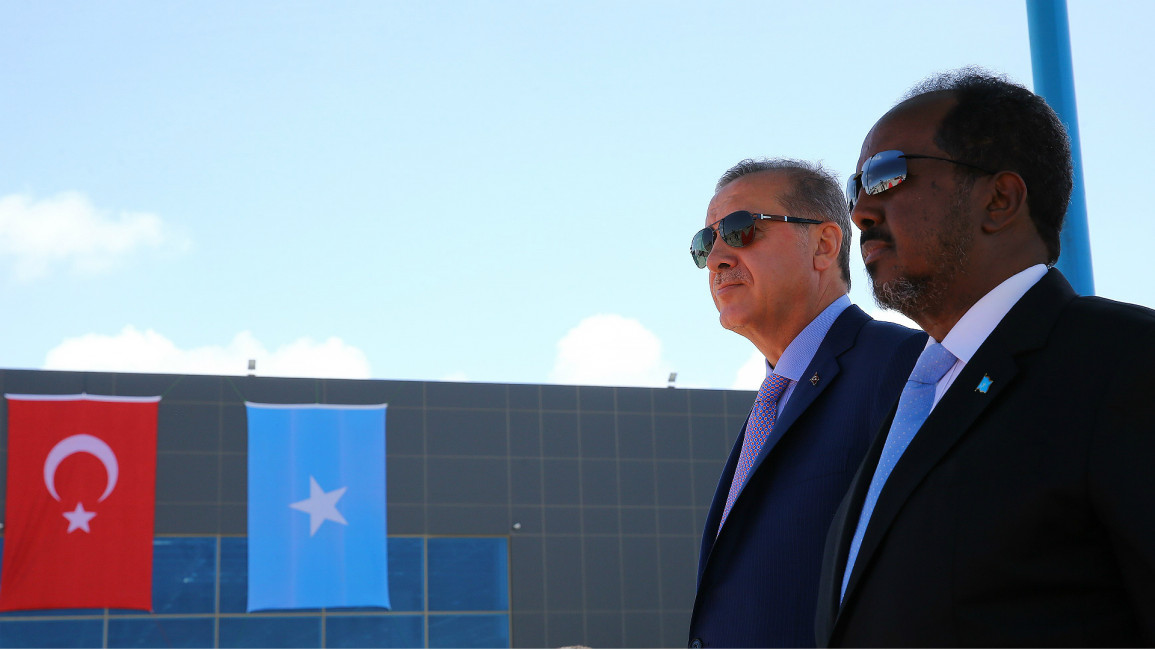New Shabaab leader labels Turkey Somalia's 'enemy'
The leader of Somalia's Shabaab extremist group Ahmed Diriye described Turkey as "the enemy of the nation" and accused foreign peacekeeping forces of plundering the country, in an audio message published on Tuesday.
In his first such message since taking control of the al-Qaeda affiliate following the death of his predecessor in a US drone strike in September 2014, Diriye said Turkish interests in the country were "looting Somali resources more than they help".
The group is fighting to overthrow Somalia's internationally-backed government and regularly claims attacks in the capital Mogadishu and elsewhere in the country.
In the 44-minute recorded message published on social networking sites and broadcast by a Shabaab radio station, Diriye also accused foreign peacekeeping forces of widespread human rights violations against Somali civilians including rape.
"Somalia is under the occupation of invading Christian crusaders. The so-called international community deceived the Somali society to accept that the Ethiopian and other AMISOM (African Union Mission in Somalia) forces are peacekeepers while their aim is to conquer the Somali territories, in order to plunder its resources," he added.
"The Turkish government is the enemy of the nation, today Somalia's economy is in total collapse because of their intervention... Turkey has invaded this country economically... They have taken control of the Somalia economy and all they want is to keep the nation in poverty."
Turkey has significantly increased its role in the country in recent years, playing an active part in reconstruction efforts and supporting humanitarian projects. Turkish businesses manage both Somalia's main port and Mogadishu's airport.
Turkish President Recep Tayyip Erdogan visited Mogadishu in June, inking several development deals and opening "one of the largest Turkish embassies in the world".
AMISOM troops were deployed to Somalia in 2007 to defend the internationally-backed government against attacks by the Shabaab.
Last month Uganda – the largest contributor to AMISOM with 6,200 soldiers – threatened to withdraw its troops by the end of 2017, but has since backtracked.
Kenya also threatened this year to pull out its 3,700 troops after the European Union, a major donor to the mission, cut funding by 20 percent saying African countries must bear more of the burden of troops' salaries.
Somalia was supposed to hold national elections this year but it now plans to hold what diplomats call a "limited franchise election" in which most citizens do not participate.
The UN now hopes a one-person-one-vote election will be possible in 2020.



